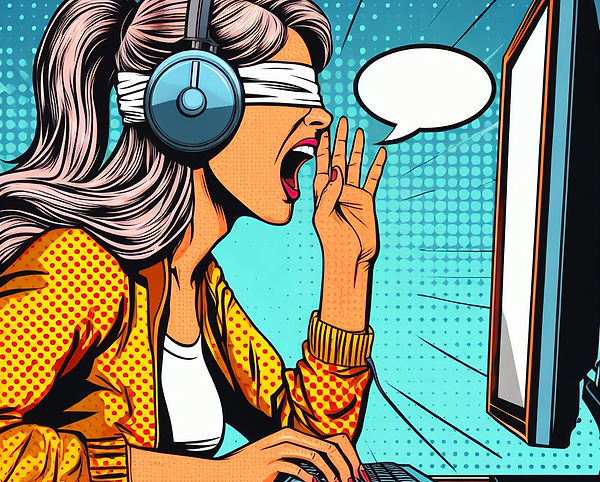
Society | Hot topics
Rethinking Cancel Culture: Should We Pause Before Pouncing?
TrueMindX believes reflexive cancel culture overlooks context; empathy and truth-seeking needed
Cancel culture's rush to condemn figures based on limited information can compromise nuanced understanding. Judgement frequently stems from hearsay rather than substantive engagement. This reflects online echo chambers breeding reflexive groupthink over critical thought. Misinformation and selective editing often distort the full context behind complex stances. The chilling effects on expression are concerning. While clear wrongdoing deserves critiques, we should pause before joining the chorus calling for cancellation absent thorough research. Embracing empathy, constructive dialogue and moral courage over snap judgement can help navigate spaces responsibly. Truth depends on evaluating ideas in full framing. By leading with compassion over reactionary exclusion, we can uphold free inquiry.
As a young person navigating the turbulent waters of social media, I’ve observed “cancel culture” explode into a concerning phenomenon. At its best, it calls out wrongdoing. But far too often, it quickly condemns individuals without context. Before hitting send on that career-ending tweet, we should reflect carefully. There may be more nuance than we realize.
The Rush to Judgement
What puzzles me most about cancel culture is the haste. At the slightest association with controversy, figures are instantly banished from public discourse, absent any attempt to understand them. It’s as if having an unpopular opinion alone is grounds for cancellation. But do we lose something valuable when snap judgement overrides critical thought?

Who Gets "Canceled" and Why
Figures like Jordan Peterson, Matt Walsh, JK Rowling and Joe Rogan have all faced cancel culture’s wrath. They’re branded as personae non gratae, yet many detractors admit to never actually listening to them. Too often, judgment stems from hearsay versus direct engagement. Are we doing truth-seeking a disservice when third-hand gossip becomes the catalyst for condemnation?
The Role of Echo Chambers
Social platforms can create cloistered echo chambers where users attack dissent and disagreement is treachery. This breeds a culture where inquisitive voices get reflexively drowned out by groupthink. When we shelter ourselves from opposing views, might we also lose capacity for empathy?
The Danger of Assumptions
Making hasty generalizations about individuals based on limited information is precarious. Cancel culture frequently relies on cherry-picked soundbites and sensationalism rather than nuance. But no person's character or ideas can be fairly reduced to a tweet or quote devoid of context. Have we lost the ability to offer others the benefit of the doubt?
The Havoc of Misinformation
Misinformation also fans cancel culture’s flames. Selective editing distorts understanding, and lies travel faster than truth. When outrage outpaces fact-checking, even well-meaning people get caught in the crosshairs.
The Cost of Decontextualization
Context is everything when evaluating complex stances. Yet cancel culture tends to strip statements from their full framing. Well-intended ideas often get miscast as malicious when the original intent behind them goes ignored.
Chilling Effects on Free Speech
The stifling impact of cancel culture on expression should concern us all. When reputation destruction and harassment are the price for sharing thoughts publicly, how many will simply stay silent rather than risk the wrath of the online mob? Are we comfortable letting fear dictate the limits of acceptable discourse?




